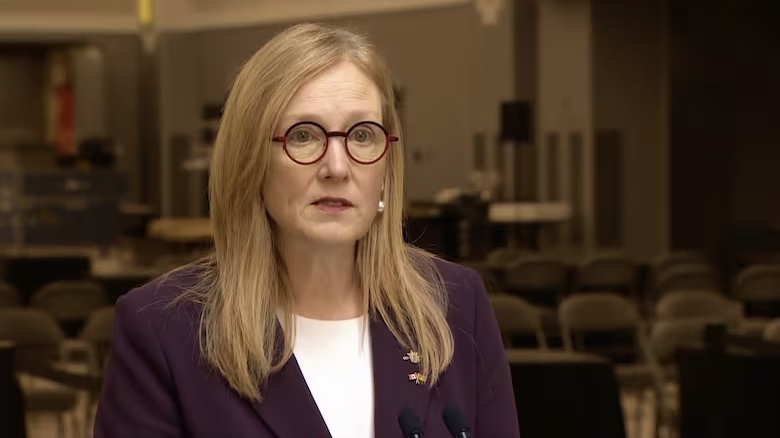B.C. Budget Aims to Tackle Deficit, Keep Promises, and Counter U.S. Tariffs
Sarah Desjardins
3/4/20252 min read


British Columbia’s 2025-26 budget, set to be unveiled Tuesday, arrives on the same day as the U.S. tariffs on Canadian goods take effect, adding economic uncertainty to an already ballooning deficit.
Finance Minister Brenda Bailey says the budget will prioritize essential services while planning for long-term deficit reduction. However, with U.S. tariffs projected to cost the province billions in lost revenue, the government has already backtracked on key election promises, including a $1,000 grocery rebate and middle-class tax cut.
"I know the question on everyone's mind is how do you build a budget in this situation?" Bailey said Monday. "Now is not the time for deep cuts; it's the time to stand up for people."
Deficit & Economic Challenges
Bailey’s budget comes amid rising deficits and declining revenues, fueled by lower corporate taxes, falling sales tax revenue, and a slowing economy.
The 2024-25 deficit sits at $9.4 billion, up $429 million from previous estimates.
Total provincial debt is expected to reach $130 billion by the end of the fiscal year.
B.C.’s debt-to-GDP ratio remains low at 22.3%, giving the government some flexibility.
Despite these challenges, B.C. Premier David Eby has ruled out deep cuts, instead focusing on spending reviews and economic diversification to address financial shortfalls.
Tariff Fallout & Budget Adjustments
B.C. estimates the U.S. tariffs could cause:
124,000 job losses by 2028.
An annual decline in corporate profits of $3.6 billion to $6.1 billion.
A drop in government revenue by $1.6 billion to $2.5 billion per year.
In response, the province is implementing several cost-saving and economic stimulus measures:
✅ Government-wide spending review to find savings.
✅ Pausing public service hiring to control costs.
✅ Fast-tracking 18 resource projects to boost exports and jobs.
✅ Encouraging residents to "buy Canadian" to offset trade losses.
Political Reaction & Fiscal Restraint Concerns
The opposition B.C. Conservatives have criticized the budget’s lack of a clear deficit reduction plan, predicting it will push the deficit past $10 billion.
"We're supposed to believe the NDP will suddenly embrace fiscal restraint? That simply doesn't hold up," said B.C. Conservative finance critic Peter Milobar.
Meanwhile, business leaders warn that without significant spending cuts, the province risks running unsustainable deficits for years to come.
Jock Finlayson, chief economist at the Independent Contractors Association, argues that excessive spending in previous years has left B.C. vulnerable:
"If the government had been running a balanced budget, they would have had a lot more room to face this crisis. Now we face a crisis, and the cupboard is essentially bare."
The Big Picture: Balancing Growth and Uncertainty
Despite the financial turbulence, B.C. remains one of Canada’s most economically diverse provinces, with experts predicting steady long-term growth.
Bailey insists the budget will position the province for success "regardless of what happens with tariffs."
Whether the government’s balancing act can maintain public services, protect jobs, and reduce the deficit without major cuts remains to be seen.
News
Stay updated with the latest BC news stories, subscribe to our newsletter today.
SUBSCRIBE
© 2025 Innovatory Labs Inc.. All rights reserved.
LINKS
